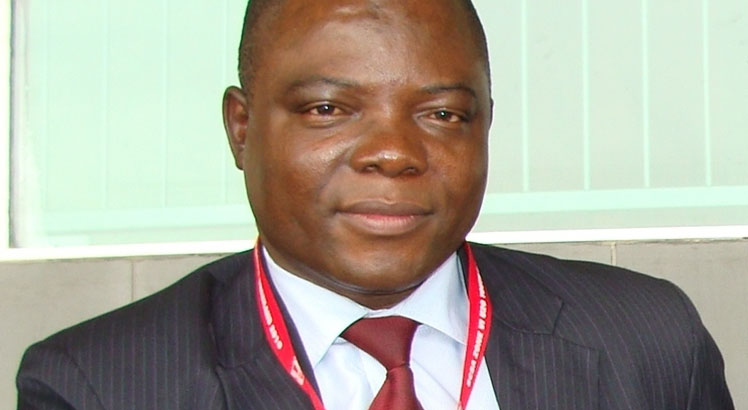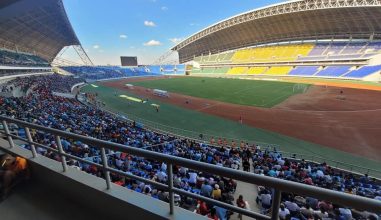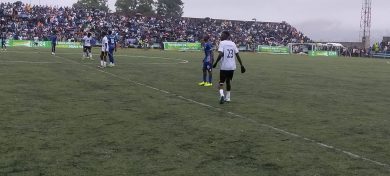Stadiums face safety tests
Stadium owners will now have to get a safety certification before their facilities are approved to host matches in the 2024 season, a development which will likely affect the dilapidated Kamuzu Stadium in Blantyre.
Football Association of Malawi (FAM) compliance manager Casper Jangale said apart from inspecting the stadia, owners have to get certification from regulatory bodies to ensure their facilities are safe for the public.
He said: “As FAM, we will inspect the stadiums and ensure that they meet the requirements for hosting matches.
“But there is also a requirement for the stadium owners to get a safety certification from relevant authorities on the state of their structures.”

Jangale said besides ensuring that the public is not endangered by patronising matches at structures that are a health risk, this will also shift the liability to the stadium owners in case of an incident.
He said: “You can’t just allow thousands of people to come and watch a match at a facility which is not certified as safe for the public by structural engineers. If something happens at the stadium, then FAM will be responsible. But if the stadium is certified by authorities, the liability will be on the person who did that.”
The requirement will likely affect Kamuzu Stadium which was condemned by both Fifa and CAF safety experts six years ago.
Ministry Youth and Sports director of sports Jameson Ndalama said they will comply with the requirement and will abide by the results.
He said: “If the stadium fails to get the safety certification, we will have no choice, but to accept the outcome.”
Government-owned stadiums such as Kamuzu, Civo and Bingu National will be certified by the Ministry of Transport and Public Works while privately-owned stadia will get the certification from National Construction Industry Council (NCIC).
FAM is expected to start inspecting stadiums next month and Jangale said they have already sent stadium owners a checklist of the requirements.
Some of the requirements include a playable pitch with green grass, good drainage system and a good perimeter fence separating the pitch and spectators.
The stadium is also supposed to have technical benches for both coaches and match officials and a tunnel joining changing rooms and the field of play.
Only stadiums with well stated capacity, enough entry and exit points, well demarcated spectator area or stands, sanitary area, hospitality kiosks, parking area as well as running water and electricity will be certified.
Jangale said they also expect the stadium to have a public address system, control room for security, media, match officials offices and a boundary fence.
Last season, clubs complained about the poor state of match venues despite FAM inspecting the facilities before they were approved to host matches.
FAM closed Mzuzu and Civo stadiums following the complaints from the clubs.
The development affected Mzuzu-based Moyale Barracks and Mzimba-based Ekwendeni Hammers who use the facility as their home ground.
Civo Stadium’s closure also affected Civil Service United and Kamuzu Barracks who had to shift to Champions Stadium in Mponela, Dowa as home ground.
Lilongwe-based Silver Strikers also played their matches at Bingu National Stadium as their home ground Silver Stadium was undergoing renovations.
Silver chief executive officer Patrick Chimimba said they are finalising the renovations.
He said: “The playing surface at Silver Stadium is ready, we are just remaining with a few touch-ups.”
Champions Stadium owner King Kabvina said they will continue improving their facility.
He said: “The stadium is currently closed as we continue to improve the facility. We want to ensure that the stadium remains one of the best. We are assured of two teams at least using our stadium as their home ground.”






One Comment